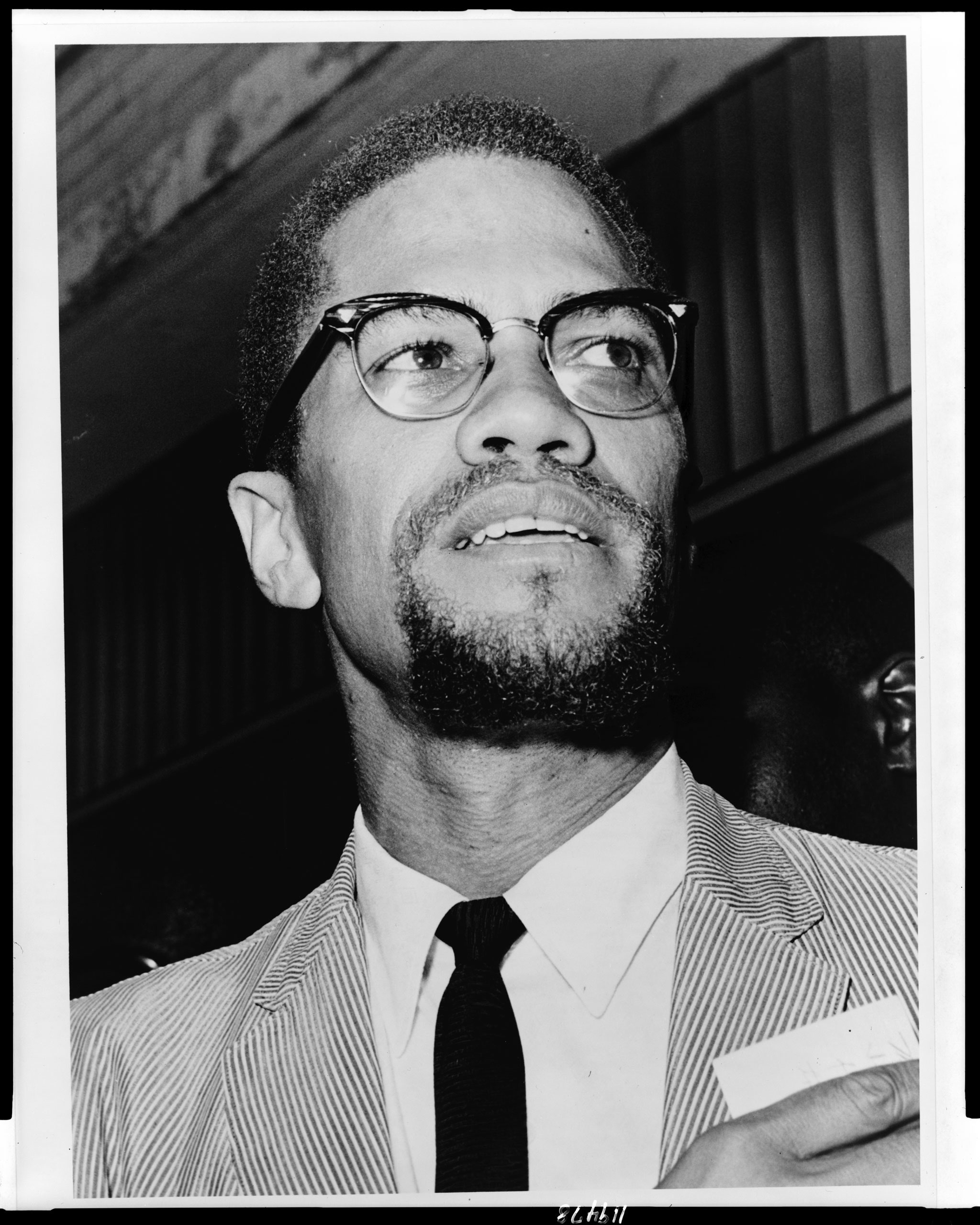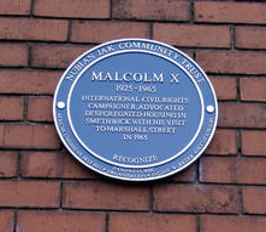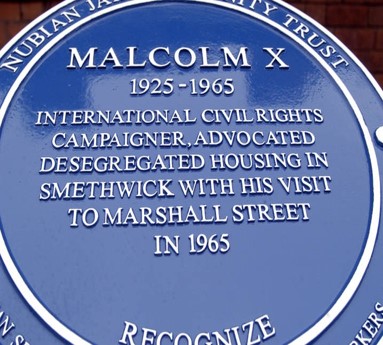

Malcolm X [1925 - 1965]
On 12th February 1965 El Hajj Malik El Shabazz better known to the world as Malcolm X took a historic walk along Marshall Street in the town of Smethwick, Birmingham. . The unexpected visit to the area by the American civil rights activist would have positive reverberations for race relations in the area for the years that followed. He made the walk after being invited to view some of the residential houses being denied to African Caribbean and Asian property seekers in the Smethwick.
At the time the council had a policy of segregated housing, however the visit of Malcolm X to Marshall Road would bring international media attention to the issue, and within a few months a new administration had been sworn in and the policy overturned. Malcolm X was invited by the Indian Workers Association to visit Smethwick, after addressing the first meeting of the Council of African Organisations in London.
Sadly, Malcolm X would not live to see the impact of his visit to the area, or the improvement in community relations where there was previously severe racial tension. Nine days after his visit later he would meet his untimely end at the hands of an assassin’s bullet. However almost half a century later visitors and site-seers from all over the world still visit Marshall Street to follow in the footsteps of his historic walk. To commemorate this, on 21st February 2012, exactly 47 years to the day of his passing, Malcolm X was honoured with a blue heritage plaque on Marshall Road in Smethwick.
The idea for the plaque was supported by the Birmingham based education group Recognize, the Indian Workers Association GB (who invited Malcolm X to Smethwick), the African Caribbean Self Help Organisation, and Sandwell Council. The plaque was unveiled by Sandwell Mayor Councillor Joyce Underhill,
Jak Beula chair of the Nubian Jak Community Trust and Avtar Joahl former secretary general of the IWA (GB) who marched with Malcolm X on that famous day in February 1965 unveiled the plaque. The event was supported by local councillors, community groups, school children, members of the public as well as national and international press and media.
It is an honour to be involved commemorating Malcolm X with a blue plaque in Britain on the anniversary of his passing 47 years ago. As an international figure for civil rights his impact was felt far beyond the shores of the United States and Africa. Indeed, one of his legacies was a contribution to the desegregation of residential housing in Smethwick! Jak Beula, founder of plaque and sculpture scheme
Malcolm X is an important historical figure whose visit to Sandwell is a landmark in race relations. Sandwell Council's cabinet member for leisure services Councillor Linda Horton
Malcolm X’s visited Smethwick in solidarity with anti-racist movement in the United Kingdom. His visit enhanced the fight against racism and the defeat of Peter Griffiths in the 1966 General Election! Avtar Jouhl, General Secretary of the Indian Workers Association GB
Omowale Malcolm X is one of the greatest Pan African organisors of the 20th Century. His example of independent thought and action for global African self-reliance is something sadly missing among modern black leaders of the new millennium. Beenie Brown, Chair of African Caribbean Self Help Organisation
Malcolm X was an erudite man of great charisma and intelligence, he was a national and international figure when he was assassinated in NY on 21 February 1965. Maxie Hayles, Chair of Birmingham Racial Attacks Monitoring Unit, and Birmingham Chair of Barac (Black Activists Rising Against the Cuts).
Throughout history Black people have been fortunate to have many great leaders, Malcolm X was a giant among them. Marika Sherwood, Co-founder of the national organization BASA (Black and Asian Studies Group).
Location: 1 Marshall Street Smethwick Sandwell Birmingham, B67 7NA

